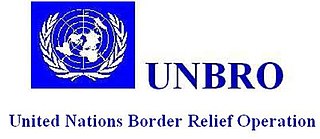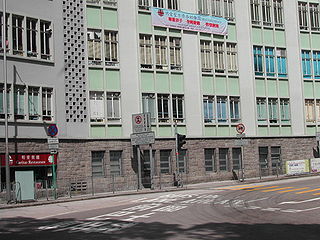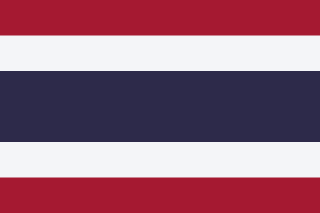
The International Rescue Committee (IRC) is a global humanitarian aid, relief, and development nongovernmental organization. Founded in 1933 at the request of Albert Einstein, the IRC offers emergency aid and long-term assistance to refugees and those displaced by war, persecution, or natural disaster. The IRC is currently working in over 40 countries and 27 U.S. cities where it resettles refugees and helps them become self-sufficient. It focuses mainly on health, education, economic wellbeing, power, and safety.
The American Jewish Joint Distribution Committee, also known as the Joint or the JDC, is a Jewish relief organization based in New York City.

The Jesuit Refugee Service (JRS) is an international Catholic organisation with a mission to accompany, serve, and advocate on behalf of refugees and other forcibly displaced persons, that they may heal, learn, and determine their own future. Founded in November 1980 as a work of the Society of Jesus, JRS was officially registered on 19 March 2000 in Vatican City as a foundation. The impetus to found JRS came from the then father general of the Jesuits, Pedro Arrupe, who was inspired to action by the plight of Vietnamese boat people. JRS has programmes in over 50 countries. The areas of work are in the field of education, emergency assistance, health care, livelihoods, reconciliation, and psychosocial support. JRS is also involved in advocacy and human rights work. This involves ensuring that refugees are afforded their full rights as guaranteed by the 1951 Geneva Convention relating to the Status of Refugees and working to strengthen the protection afforded to Internally displaced persons (IDPs). JRS's international headquarters are located in Rome at the Society's General Curia. The International Director is Rev. Thomas H. Smolich, SJ.
A humanitarian crisis is defined as a singular event or a series of events that are threatening in terms of health, safety or well being of a community or large group of people. It may be an internal or external conflict and usually occurs throughout a large land area. Local, national and international responses are necessary in such events.

The United Nations Border Relief Operation (UNBRO) was a donor-nation funded relief effort for Cambodian refugees and others affected by years of warfare along the Thai-Cambodian border. It functioned from 1982 until 2001.
The United Methodist Committee on Relief (UMCOR) is the global humanitarian aid and development organization of the United Methodist Church (UMC). UMCOR is a nonprofit 501(c)3 organization operated under the auspices of the General Board of Global Ministries. One hundred percent of donations are directed to an earmarked project or relief effort. Administrative expenses are funded by an annual offering collected by United Methodist churches on UMCOR Sunday.

The disaster recovery response to Hurricane Katrina included federal government agencies such as the Federal Emergency Management Agency (FEMA), the United States Coast Guard (USCG), state and local-level agencies, federal and National Guard soldiers, non-governmental organizations, charities, and private individuals. Tens of thousands of volunteers and troops responded or were deployed to the disaster - most in the affected area but also throughout the U.S. at shelters set up in at least 19 states.

Danish Refugee Council (DRC) is a private Danish humanitarian organisation, founded in 1956. It serves as an umbrella organization for 33 member organizations.

The American Refugee Committee (ARC) is an international nonprofit, nonsectarian organization that has provided humanitarian assistance and training to millions of beneficiaries over the last 30 years.

The Norwegian Refugee Council is a humanitarian, non-governmental organisation that protects the rights of people affected by displacement. This includes refugees and internally displaced persons who are forced to flee their homes as a result of conflict, human rights violations and acute violence, as well as climate change and natural disasters.
Exsul Familia is the apostolic constitution written by Pope Pius XII on the topic of migration. It was released on 1 August 1952. The title of the document refers to the migrant Holy Family, forced to flee into Egypt, taken as the archetype of every refugee family. Exsul Familia is the only papal document in which Pope Pius himself outlines the nature and extent of Papal charities during and after World War II on millions of refugees and displaced persons.
Pontificia Commissione di Assistenza (PCA), also known as “Pontificia Commissione di Assistenza ai Profughi”, “Vatican mission” and “Vatican Relief”, was a papal ad hoc commission, created by Pope Pius XII on April 18, 1944, to provide quick, non-bureaucratic and direct aid to needy populations, refugees, and prisoners in war-torn Europe.

The 2009 Angola, Namibia and Zambia floods was a natural disaster which began in early March 2009 and resulted in the deaths of at least 131 people and otherwise affected around 445,000 people. The floods affected seven regions of Namibia, three provinces of Zambia, two regions of Angola and part of Botswana. The floodwaters damaged buildings and infrastructure and displaced at least 300,000 people. A state of emergency was declared in northern Namibia and there were fears that a disease epidemic would ensue. The Red Cross agencies and governments of the two countries responded to the disaster, and aid was distributed by the World Health Organization.
Catholic Relief Services (CRS) first began its work in 1943. It is the official international humanitarian agency of the Catholic community in the United States. The agency provides assistance to people in 99 countries and territories based on need, regardless of race, nationality or creed. Catholic Relief Services is a member of Caritas Internationalis, a confederation of 162 Catholic relief, development and social service organizations operating in over 200 countries and territories worldwide. Caritas Internationalis is the official humanitarian agency of the global Catholic Church.
RADION International is a Christian humanitarian relief and development organisation that provides both short term as well as long-term assistance to underprivileged and marginalized communities in Asia. RADION International, headquartered in Chiang Mai, serves critically needy communities across northern Thailand. RADION International also has a field office in Phetchabun province that serves the largest concentration of hill-tribesmen in Thailand.

Site Two Refugee Camp was the largest refugee camp on the Thai-Cambodian border and, for several years, the largest refugee camp in Southeast Asia. The camp was established in January 1985 during the 1984-1985 Vietnamese dry-season offensive against guerrilla forces opposing Vietnam's occupation of Cambodia.
INTERSOS is a non-profit humanitarian aid organization that works to assist victims of natural disaster and armed conflict. INTERSOS has operated as an independent organization since its foundation in 1992. A Mine Action Unit was established within INTERSOS to deal specifically with the mine danger and its effects through mine awareness, victims assistance and mine clearance operations.
The Office of U.S. Foreign Disaster Assistance (OFDA) is an organizational unit within the United States Agency for International Development (USAID) that is charged by the President of the United States with directing and coordinating international United States government disaster assistance.

Caritas Internationalis is a confederation of 165 Catholic relief, development and social service organisations operating in over 200 countries and territories worldwide.













